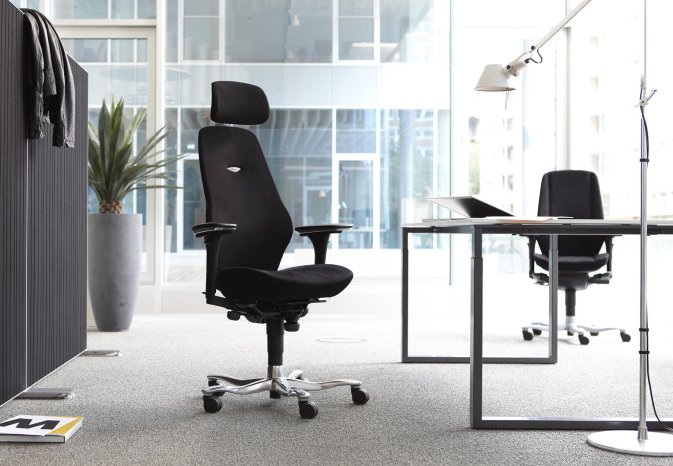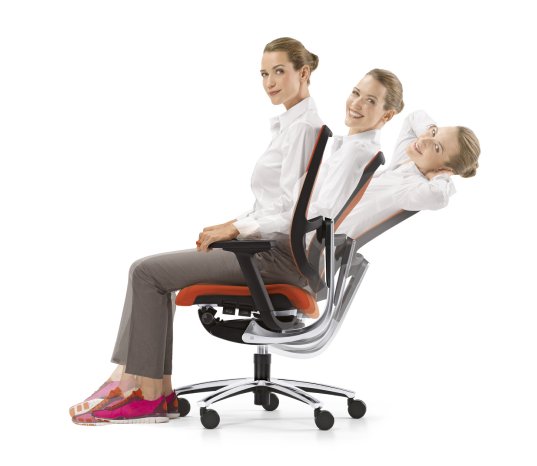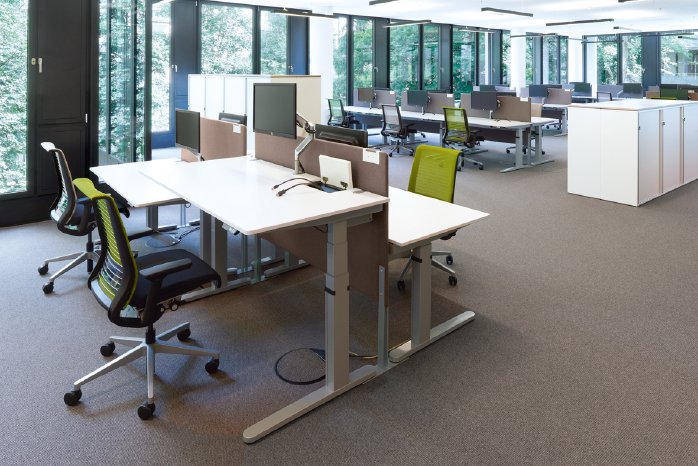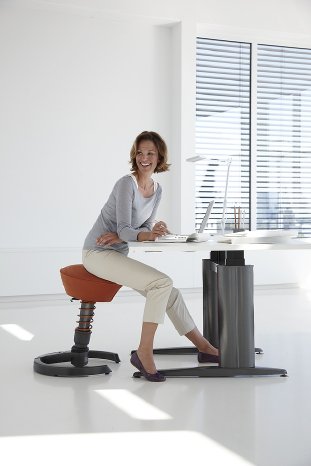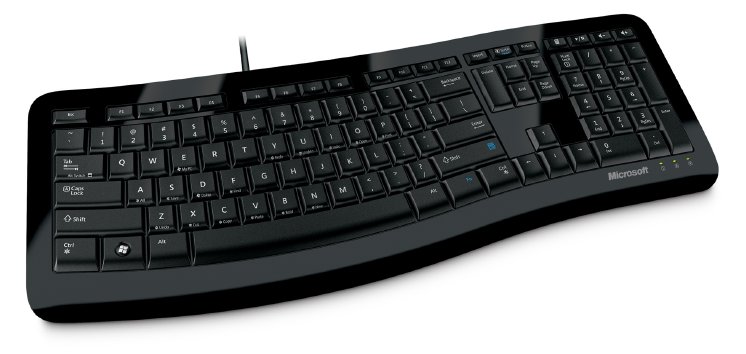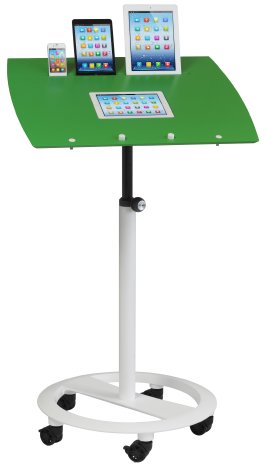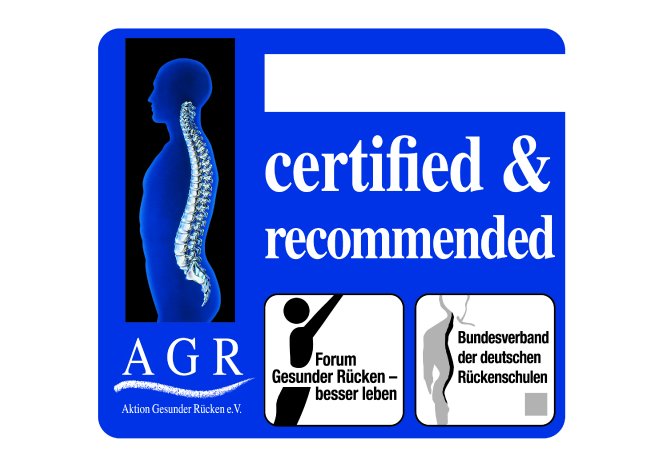Movement is the key
Those who spend all day sitting down are at risk of developing backache. "Active sitting" on the other hand reduces the strain on spinal column and muscles, stimulates the supply of essential nutrients to the intervertebral disks and thus helps to prevent backache. What is "active sitting"? Active sitting describes a dynamic working day, even if most of this is spent at the desk. The dynamic aspect is produced on the one hand by alternating between sitting, standing and walking, and on the other hand by active sitting with changing positions.
Office furniture: individual choice instead of the uniform approach
"Active sitting" with alternation between a sitting and standing working posture is best achieved using ergonomically appropriate office furniture. As far as the office chair is concerned, it is crucial that this allows and even fosters dynamic sitting. Good examples bearing the AGR seal of approval with exemplary fulfilment of these requirements are the office chairs by Sedus and Kinnarps, together with active sitting furniture by aeris. They help people to keep moving in the workplace. Details such as various individual adjustment possibilities (seat area, back rest, leaning pressure) together with seat depth with cushioning effect or iliac crest supports are crucial components in classic office chairs when it comes to enhanced back health. However, a crucial role is played by stimulating the sitting person to move more with controlled activity. Manufacturers such as Sedus and Kinnarps are aware of this and offer special "FreeFloat" technology (www.kinnarps.de) and the "swing up" office chair series (www.sedus.de) for more movement in the office. Active sitting furniture such as the 3D swopper, 3.Dee and the dynamic "muvman" seat (www.aeris.de) are ideal for more movement in the office.
Standing desks and standing/sitting desks by officeplus, VS or Sedus make an appropriate contribution to dynamic standing and sitting. Advantage: the desks with their adjustable height warrant a relaxed posture when standing and sitting. This fosters movement in everyday work processes, as well as relieving the pressure on the spine. The AGR-tested models in series 1000 and 901 (www.vs-moebel.de), the "temptation c" and "twin" models with motor-driven height adjustment (www.sedus.de), together with "ergon master" and "ergon green" (www.officeplus.de) are not only easily adapted to the individual needs of the user but also blend well into different office environments. Added benefit for technophiles: the "rolls" standing desk (www.officeplus.de) offers a great deal of mobile flexibility, together with the ergonomic benefits for a healthy back and neck. Mobile devices such as iPads and iPhones can be fitted in the tabletop which has an integrated battery connection to make the user independent of the next power socket for hours on end.
In addition, a number of small measures can help to introduce more movement into everyday office routines: put the printer at some distance from your desk, stand up to make phone calls, use the stairs instead of the lift, or talk to your colleague in person in a nearby office, instead of just writing an e-mail.
Keyboard and mouse: a healthy back is also important when working at the computer
In addition to office furniture, a back-friendly working posture depends on computer input devices such as the keyboard and computer mouse. Unergonomical computer input devices can cause tension in the shoulder muscles, pain in the wrists and tingling sensations or even numbness in the finger tips. This results in pains and aches, particularly backache, together with fatigue and wavering concentration. Back-friendly office equipment is therefore rounded off by ergonomic PC input devices such as the AGR-certified mice and keyboards by Microsoft (www.microsoft.de/hardware).
In brief
The rigid working posture adopted by those who spend most of their working day sat at their desk will cause back problems for some people. This results in poor posture and tension, together with backache and neck pain. A back-friendly workplace can have a valuable preventive effect in this respect. The Campaign for Healthier Backs AGR has awarded office furniture by aeris, Kinnarps, officeplus, Sedus, VS Möbel and PC input devices by Microsoft the AGR seal of approval, the quality seal for back-friendly everyday products.
More information about back-friendly daily routines and back-friendly everyday products marked with the AGR seal of approval is available on request together with a list of trained, certified retailers in an information package with the "Ergonomic Guide" and the "AGR MAGAZIN" patient guide at a price of €9.95 from the AGR (phone +49 4284/926 99 90 or www.agr-ev.de).
